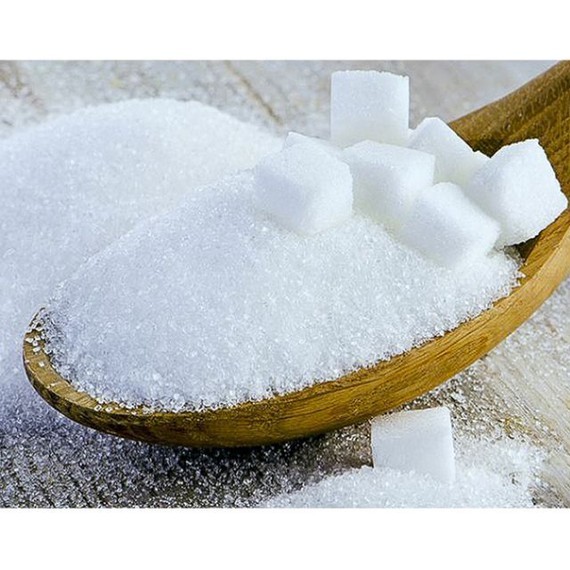
According to the Vietnam Sugarcane and Sugar Association (VSSA), the area of sugarcane harvested in the 2018-2019 crop reached 192,000 hectares, the production of commercial sugarcane was more than 12 million tons, the average yield of sugarcane on the harvested area reached 63 tons per hectare, and sugar production exceeded 1.1 million tons.
However, in the 2019-2020 crop, which ends in May, the productivity was lower, with the harvested sugarcane area of more than 150,000 hectares, the output of commercial sugarcane at above 7 million tons, the average yield of sugarcane on the harvested area reaching 53 tons per hectare, and sugar production of more than 700,000 tons.
Mr. Cao Anh Duong, Acting Chairman of the VSSA, explained because the income is too low, farmers are no longer interested in sugarcane and have switched to other crops, so sugarcane output has decreased sharply. Thus, this is the sugarcane crop with the lowest sugarcane consumption and processing in the last 19 crops, leading to the lowest number of active sugar refineries, which is only 29 plants now from 44 previously.
The ATIGA is applied by Vietnam to the sugar industry from January 1 this year, in which import tariffs reduce from 80 percent to 5 percent. In the past, the sugar industry faced difficulties because of smuggled sugar. Now, after the ATIGA becomes effective, these difficulties are caused by imported sugar.
Mr. Duong analyzed that entering 2020, Vietnam started to implement the ATIGA commitments for the sugar industry, so the sugar imports have exploded with a large amount of sugar. According to the General Department of Vietnam Customs, in the first eight months of this year, Vietnam had imported 740,931 tons of sugar from Thailand, more than 46,000 tons from Malaysia, and more than 13,000 tons from Myanmar. The amount of sugarcane imported into Vietnam increased six times over the same period last year.
According to the VSSA, the prices of domestic sugar dropped due to the competitive effect of imported sugar. Moreover, sugar smuggling is still happening. Besides, the Covid-19 pandemic has caused sugar consumption to decline, so the prices of sugar have begun to plunge. From there, sugar refineries have only two choices. The first one is to continue to stockpile sugar to deal with the exhaustion of operating cash flows, which means that they will not pay wages for their workers, or they even cannot pay money to farmers in the previous sugarcane crop. The other option is to accept to sell some amount of sugar at a loss to maintain the operating cash flow. Although the sugar refineries tried their best to curb decreases in sugarcane prices to keep raw material growing areas, many of them also have had to shut down.
Explaining the reason why imported sugar is cheaper than domestically-produced one, the VSSA said that there are four main sugar manufacturing countries in the ASEAN, namely Thailand, Philippines, Indonesia, and Vietnam. However, the remaining countries did not actually open their sugar markets under the ATIGA agreement. They have a mechanism to protect their farmers and domestic sugar industries from the destructive effects of cheap sugar from international markets.
For example, Thailand exported raw sugar at US$350 per ton, while the price of sugar in Thailand was at $450 per ton. The Filipino sugar industry used to be severely harmed by corn sugar imported from China, so it has doubled consumption tax on soft drinks containing corn sugar.
According to the forecast of VSSA, in the 2020-2021 sugarcane crop, there will be four more sugar refineries closed. Mr. Cao Anh Duong suggested that enterprises need to monitor and collect information on the situation of domestic sugar production and trading to propose to the association and the Ministry of Industry and Trade to consider investigating and applying safeguards measures for sugar products following the provisions of Vietnamese laws and international practice.
Moreover, they need to participate in establishing a synchronous and accurate database on import, export, and production based on information provided by competent authorities to prepare trade remedy dossiers, as well as put sugarcane into the support group soon, and make sugar reserves transparent.
However, in the 2019-2020 crop, which ends in May, the productivity was lower, with the harvested sugarcane area of more than 150,000 hectares, the output of commercial sugarcane at above 7 million tons, the average yield of sugarcane on the harvested area reaching 53 tons per hectare, and sugar production of more than 700,000 tons.
Mr. Cao Anh Duong, Acting Chairman of the VSSA, explained because the income is too low, farmers are no longer interested in sugarcane and have switched to other crops, so sugarcane output has decreased sharply. Thus, this is the sugarcane crop with the lowest sugarcane consumption and processing in the last 19 crops, leading to the lowest number of active sugar refineries, which is only 29 plants now from 44 previously.
The ATIGA is applied by Vietnam to the sugar industry from January 1 this year, in which import tariffs reduce from 80 percent to 5 percent. In the past, the sugar industry faced difficulties because of smuggled sugar. Now, after the ATIGA becomes effective, these difficulties are caused by imported sugar.
Mr. Duong analyzed that entering 2020, Vietnam started to implement the ATIGA commitments for the sugar industry, so the sugar imports have exploded with a large amount of sugar. According to the General Department of Vietnam Customs, in the first eight months of this year, Vietnam had imported 740,931 tons of sugar from Thailand, more than 46,000 tons from Malaysia, and more than 13,000 tons from Myanmar. The amount of sugarcane imported into Vietnam increased six times over the same period last year.
According to the VSSA, the prices of domestic sugar dropped due to the competitive effect of imported sugar. Moreover, sugar smuggling is still happening. Besides, the Covid-19 pandemic has caused sugar consumption to decline, so the prices of sugar have begun to plunge. From there, sugar refineries have only two choices. The first one is to continue to stockpile sugar to deal with the exhaustion of operating cash flows, which means that they will not pay wages for their workers, or they even cannot pay money to farmers in the previous sugarcane crop. The other option is to accept to sell some amount of sugar at a loss to maintain the operating cash flow. Although the sugar refineries tried their best to curb decreases in sugarcane prices to keep raw material growing areas, many of them also have had to shut down.
Explaining the reason why imported sugar is cheaper than domestically-produced one, the VSSA said that there are four main sugar manufacturing countries in the ASEAN, namely Thailand, Philippines, Indonesia, and Vietnam. However, the remaining countries did not actually open their sugar markets under the ATIGA agreement. They have a mechanism to protect their farmers and domestic sugar industries from the destructive effects of cheap sugar from international markets.
For example, Thailand exported raw sugar at US$350 per ton, while the price of sugar in Thailand was at $450 per ton. The Filipino sugar industry used to be severely harmed by corn sugar imported from China, so it has doubled consumption tax on soft drinks containing corn sugar.
According to the forecast of VSSA, in the 2020-2021 sugarcane crop, there will be four more sugar refineries closed. Mr. Cao Anh Duong suggested that enterprises need to monitor and collect information on the situation of domestic sugar production and trading to propose to the association and the Ministry of Industry and Trade to consider investigating and applying safeguards measures for sugar products following the provisions of Vietnamese laws and international practice.
Moreover, they need to participate in establishing a synchronous and accurate database on import, export, and production based on information provided by competent authorities to prepare trade remedy dossiers, as well as put sugarcane into the support group soon, and make sugar reserves transparent.
























